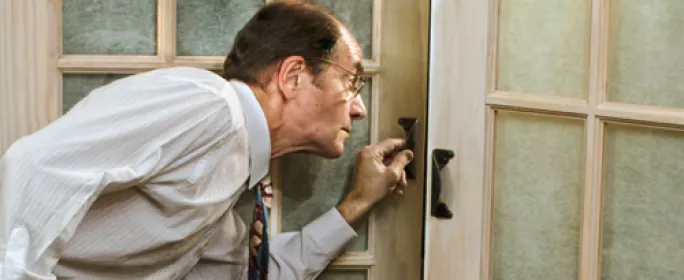Ofsted: ‘We don’t grade teachers on individual lessons’
Inspectors should not grade teachers on individual lessons, Ofsted has insisted.
The inspectorate has today published a report by Mike Cladingbowl, its national director for schools, which aims to clarify some misconceptions about the inspection process.
While the prospect of one of their lessons being rated inadequate by an inspector has long been a source of terror for NQTs and experienced teachers alike, Mr Cladingbowl has insisted that the practice is now a thing of the past.
“Inspectors,” he writes, “have been instructed not to grade the overall quality of a lesson they visit.”
While the current evaluation form used by inspectors during lesson observations includes a space for them to rate the “quality of teaching”, this does not equate to a grade for the lesson, Mr Cladingbowl explains.
“Inspectors may use this box to record judgements gathered from a wide variety of sources - not just lesson observations - for example, when looking at pupils’ work or when looking at marking.”
This, he insists, is “categorically not the same as judging a teacher, or even the teaching, and especially not a lesson overall”.
He even reveals Ofsted would be “prepared to consider” not using grades to assess teachers at all.
As inspectors spend only around 25 minutes in each lesson they observe, it would be “nonsensical to suggest that an Ofsted inspector could give a definitive validation of a teacher’s professional competency in such a short time,” Mr Cladingbowl explains.
“We are not in the business of handing out badges that say ‘You are an outstanding teacher’ or the opposite. We leave that to others, who will use their own and other evidence to come to a conclusion.”
However, if asked by the teacher for feedback, inspectors were permitted to share their verdict, including their grade for the overall “quality of teaching”, as long as this was not seen to “constitute a view about whether the teacher is a ‘good’ teacher or otherwise”.
Teachers, too, “need to understand this”, he adds, as they “often clamour to know what ‘grade’ they got”.
And Mr Cladingbowl admits in his letter that Ofsted “may need to do more” in explaining to teachers what the grade represents.
“Making a judgement about the quality of teaching, based on a wide variety of evidence gathered in the classroom and elsewhere, is not the same as judging how well a teacher performed,” he continues. “I know this may sound like splitting hairs - but it is an important difference.”
A grade for teaching should take into account other factors surrounding a lesson, such as “the behaviour of the students and how well they are managed, subject knowledge, the standard of work completed in books, the quality of marking and so on”.
Mr Cladingbowl cites the example of a teacher who recently produced “literally, an all-singing, all-dancing lesson” complete with “music, comedy, costumes, games, ‘thinking hats’, and all with clear objectives on the whiteboard”.
The teacher’s teaching quality was graded inadequate, because “students’ graffiti-strewn books hadn’t been marked for six months and work was shoddy or incomplete”.
Following a meeting with Mr Cladingbowl last week, blogging headteacher Tom Sherrington has argued that schools were not aware of this policy because “too many inspections are promoting the view that grading, de facto, still does exist”.
TES blogger Tom Bennett also attended the meeting. He later said the move by Ofsted not to grade lessons “blows a hole in the idea that schools should be grading lessons at all”.
“How many schools do you know that have produced lesson observation criteria, which teachers then slavishly observe like a divine liturgy? Most of them, I’ll bet,” he added.
Keep reading for just £1 per month
You've reached your limit of free articles this month. Subscribe for £1 per month for three months and get:
- Unlimited access to all Tes magazine content
- Exclusive subscriber-only stories
- Award-winning email newsletters




